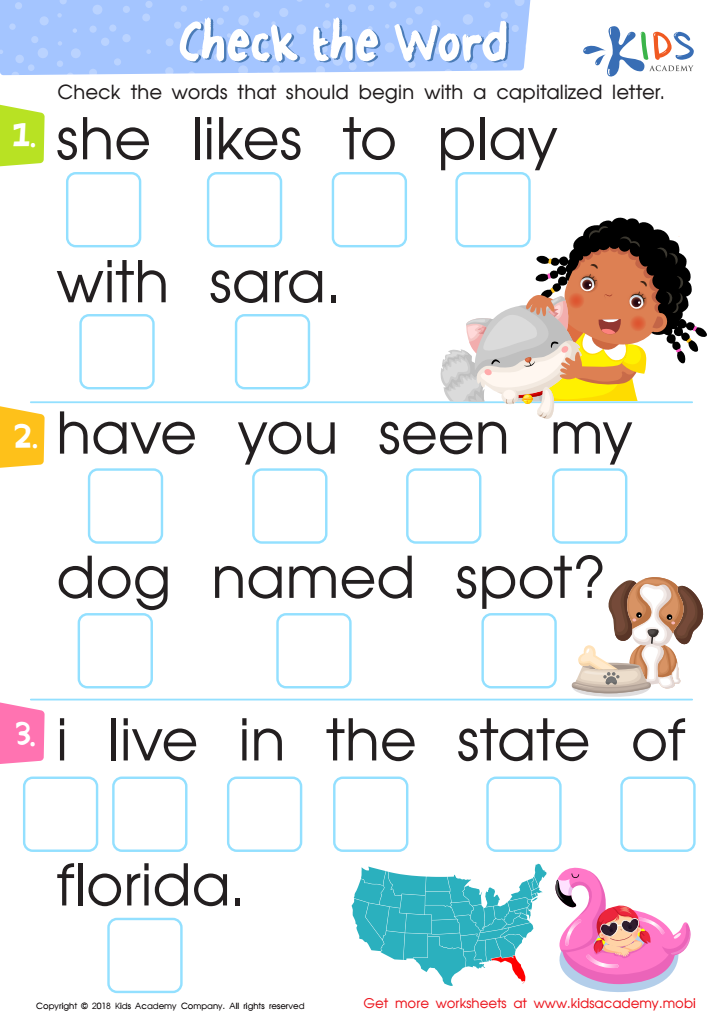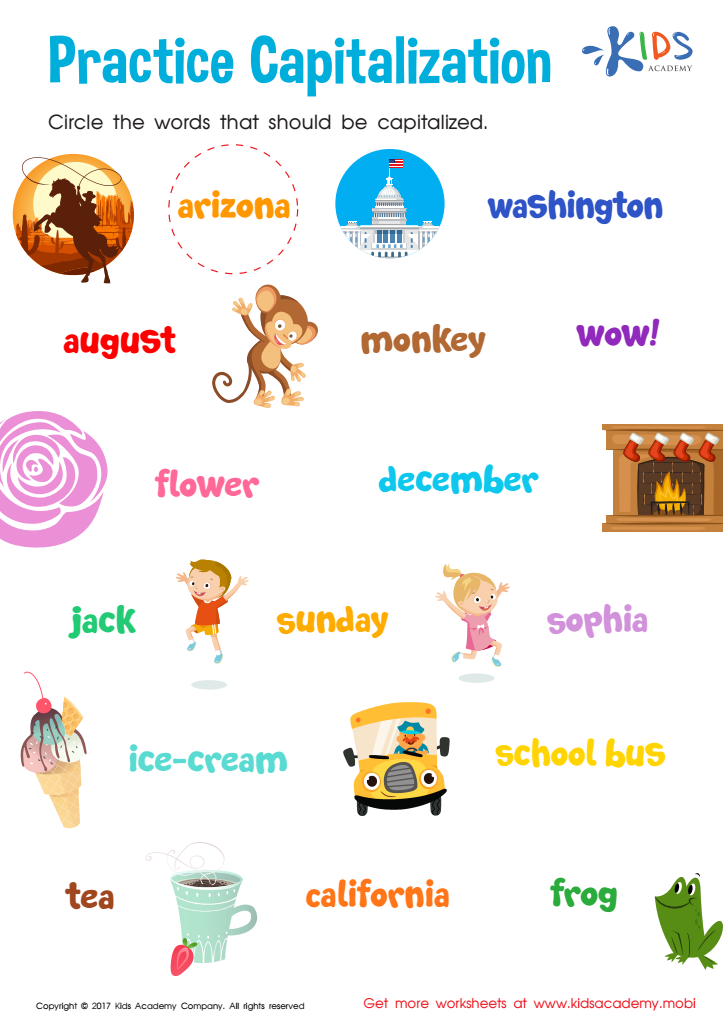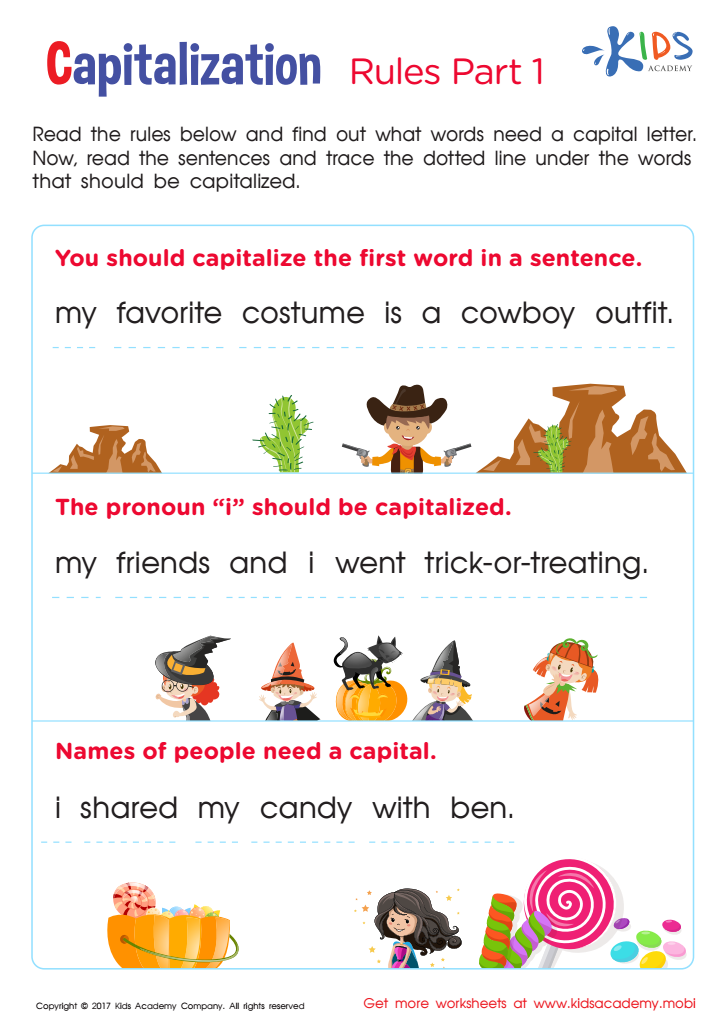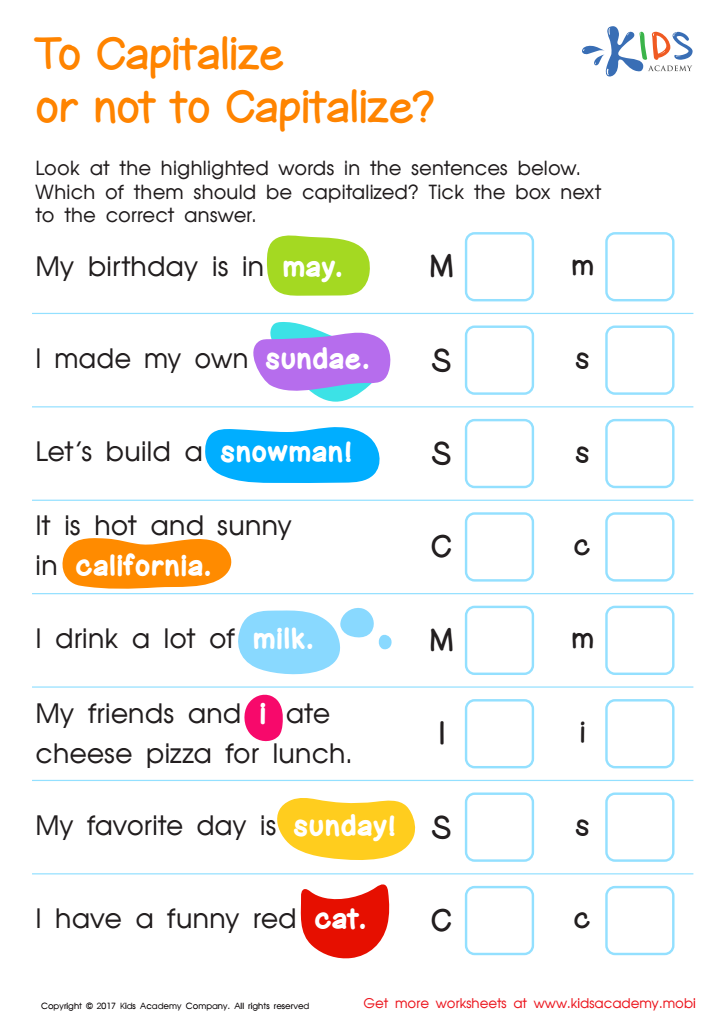Normal Capitalization Worksheets for Ages 3-8
4 filtered results
-
From - To
Nurture your child's writing skills with our engaging "Normal Capitalization Worksheets" designed for ages 3-8. At Kids Academy, our worksheets provide fun and educational exercises that help young learners master the rules of capitalization. Each printable is perfectly crafted to reinforce proper use of uppercase and lowercase letters, ensuring your child's confidence and competence in writing. Ideal for preschool through early elementary grades, these activities make learning enjoyable and effective. Empower your child to excel with our meticulously designed capitalization worksheets today. Explore and download a wide range of free printable resources at Kids Academy.


Check the Word Worksheet


Practice Capitalization Printable


Capitalization Rules: Part 1 Worksheet


Capitalization: To Capitalize or Not? Printable
Caring about normal capitalization helps to build a strong literacy foundation for children ages 3 to 8, and is crucial in fostering effective communication skills. Proper sentence structure, which includes the use of appropriate capitalization, sets clear rules for writing that young learners can easily follow. By understanding and practicing normal capitalization early on, children learn to identify the beginning of sentences, recognize the importance of proper nouns, and distinguish titles from regular text.
Parents and teachers play a vital role in inculcating these habits. When adults consistently model correct capitalization, children are more likely to internalize and mimic these rules. This early introduction to standard writing conventions helps youngsters in decoding text better, aids in understanding the nuances of language, and reduces confusion. Correct capitalization enhances readability and helps children comprehend written material more effectively, thereby boosting their confidence in reading and writing.
Furthermore, proficiency in capitalization contributes to academic performance as it is often a requirement in language arts curricula and standardized tests. Beyond education, good writing habits translate to better communication skills, which are vital in real-life situations and future professional settings. Therefore, understanding and practicing normal capitalization are fundamental skills that serve as building blocks for children's overall literacy development.

 Assign to the classroom
Assign to the classroom









